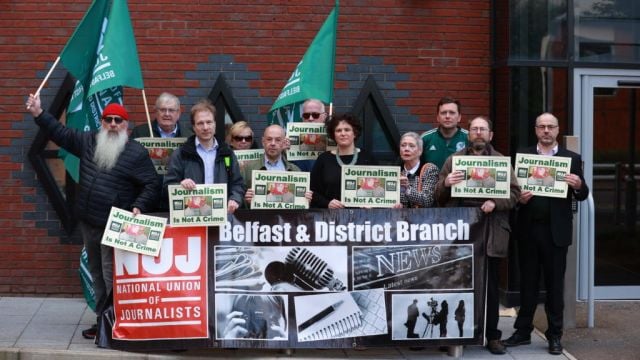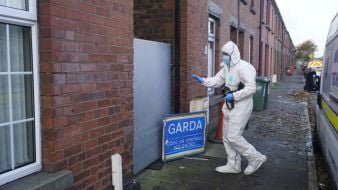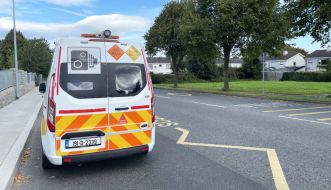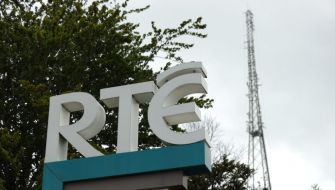Police in the North made 323 applications for communications data relating to journalists since 2011, a report has revealed.
A report produced by the Police Service of Northern Ireland (PSNI) said the vast majority of applications were related to journalists who were victims, suspects or witnesses to crime.
The report, which was compiled for the Northern Ireland Policing Board – the PSNI’s oversight body, said of the 323 applications, 10 sought to identify a journalistic source using covert powers.
The report added that the “remainder of the applications did not seek to identify a journalist’s source and their profession may have been entirely unrelated to the request”.
The report also revealed that in the same time period there were 500 applications for communications data related to lawyers who were victims, suspects or witnesses to crime.
The figures were placed in the context that the PSNI makes around 8,500 communication data requests annually for a range of criminal offences.
It was also contended that the main power police use is for communications data only, described as the “who, where, when and how” of communication, but “not what was said, written or spoken”.
The report was published online on Thursday following a private meeting of the Policing Board in Belfast.
It came after concerns were raised during an Investigatory Powers Tribunal (IPT) hearing in London.
The hearing was during an ongoing case examining allegations that investigative reporters Barry McCaffrey and Trevor Birney were subject to unlawful covert intelligence by the police.
It also heard claims the PSNI subjected other journalists to routine phone surveillance.
Earlier this week, PSNI Chief Constable Jon Boutcher announced an independent review, headed by Angus McCullough KC, of any use of surveillance against journalists and other specific groups by the PSNI.
Mr Boutcher has said much of the public concern has arisen because of “misinterpretation of documents” made available in redacted form at the tribunal.
In a statement following the Policing Board meeting, chair Mukesh Sharma welcomed the report, but said it “does not give the board all the assurance it needs”.
“The McCullough Review process may do so, and the board will receive updates as that work progresses,” he said.
“The board takes its human rights monitoring duties seriously. The emphasis we have put on police use of covert surveillance has contributed to the establishment of these arrangements. Police surveillance remains a focus of the board’s human rights work and has constituted a large part of our recent review of privacy and policing.
“The board awaits the conclusion of the McCullough Review and remains open to all courses of action to ensure there is proper accountability on these issues, and will continue to pursue the question of the use of police surveillance powers directly with the Chief Constable.”
At the Stormont Assembly on Monday, Justice Minister Naomi Long rejected a call to hold an independent inquiry, pointing out it was an issue for the Policing Board in the first instance.
However, she said she was concerned over the allegations and would act if necessary.
Earlier on Thursday, the NUJ protested outside the Policing Board.
Mr McCaffrey was among those who attended.
He said the review established by Mr Boutcher did not go far enough because it does not have the power to compel former officers to provide information.
He added: “Only a public inquiry can compel former officers to come and tell what they knew.”
“Somebody in authority within the PSNI authorised and allowed this to happen. The public needs to know who allowed it to happen.
“There needs to be a public inquiry because these former police officers need to be compelled to come and give evidence.
“Society needs to know what has been going on for 20 years.”
Patrick Corrigan, Northern Ireland programme director at Amnesty International, was also at the protest.
He said: “Serious revelations have come out via the Investigatory Powers Tribunal about police spying on journalists and potentially on lawyers and others.
“It is the Policing Board’s statutory role to hold the police accountable so we are asking them to hold an independent inquiry into this surveillance scandal and to finally lay bare what exactly has been going on.”
Thursday’s meeting of the Policing Board is closed to the media.
The board’s monthly meetings are usually held in public, but advice sent to media confirmed that its June accountability meeting would take place in private session because of “pre-election guidance”.







